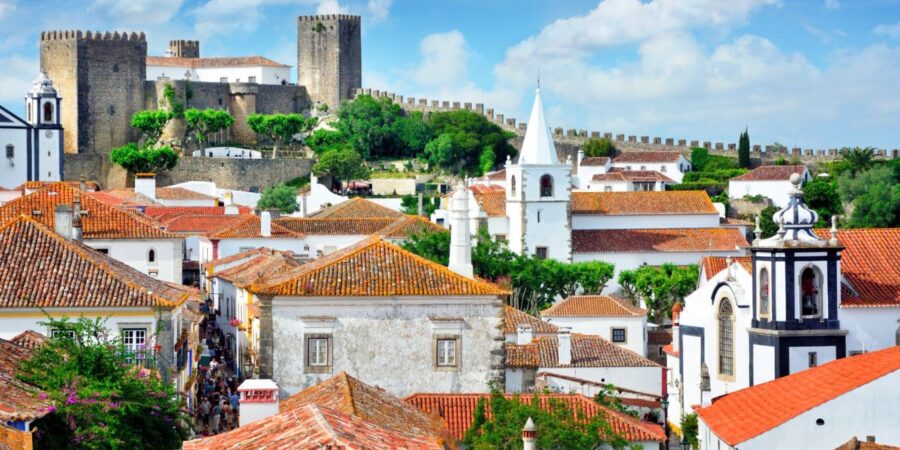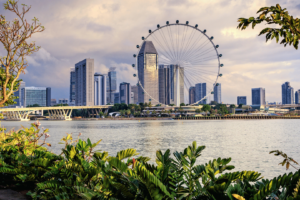In recent years, Portugal has attracted many people from around the world who have now made this European country their permanent home. The first step for any individual who wants to do the same is to obtain a visa to reside in Portugal.
Here, there are several options depending on the person’s circumstances. In this post, we’ll look at one of these options, the Portugal D3 visa, in more detail.

What is the Portugal D3 Visa?
The D3 visa is a visa for highly qualified individuals, who already have a promise for work or a valid work contract with Portuguese companies to work and stay in Portugal. The D3 visa allows the holder the right to enter Portugal for work purposes and residence.
Once the visa has expired, the holder is entitled to apply for a Portuguese residence permit and the European Union Blue Card, which enables the holder to move freely through the European Union. In addition, another benefit of the Portugal D3 visa is that holders can bring their families along through the family reunification process, which we’ll deal with in more detail later.

Who can apply for the D3 visa?
As mentioned above, the Portugal D3 visa is available to highly qualified individuals who perform highly qualified activities. According to Portuguese law, a highly qualified activity is an exercise of which it requires exceptional skills or an adequate qualification for the specific activity.
In addition to performing a highly qualified activity, the Portugal D3 visa also requires that the person have an employment contract or a promise of employment. In both these cases, the applicant needs to comply with certain specific requirements, which we’ll also deal with in more detail later on in this article.
Having satisfied these requirements is not necessarily enough to be granted the D3 visa as the application will also be carefully considered based on the European Union’s statutory employment criteria and the applicant’s skill level should be on the fourth level based on the International Standard Classification of Occupations.
What is a highly qualified activity?
As mentioned earlier, we mentioned that a highly qualified activity is one that requires specialised skills or an adequate qualification to practice. But what are the exact activities which fall under this definition? According to the European Commission, a highly qualified activity is those activities practised by professionals that fall into one of two groups:
- Management positions. These positions involve extensive skills in management and, as such, include positions like directors, managers, executives, officers, legislators, and senior administration officers.
- Experts in intellectual and scientific activities. These positions require specialised skills and/or qualifications and include positions like scientists and engineers, teachers, business and management professionals, IT professionals, health professionals, and legal experts.

Documents required for the application
Now that we’ve looked at when a person will qualify for the Portuguese D3 visa, let’s look at all the documents required for the application. These include:
- Passport valid for an additional 3 months following the duration of the intended stay
- Two recent colour photographs of the applicant.
- A duly completed and signed D3 visa application form.
- Proof of international travel medical insurance, which includes cover for medical emergencies and repatriation.
- A Criminal Records Certificate issued by the applicant’s country of origin and those countries recently visited by the applicant.
- A permission by the application that the Portuguese criminal registry may be consulted.
- Proof by the applicant that they and their family have the necessary subsistence means. In other words, the applicant should provide proof of their income.
- Proof of accommodation for the applicant and their family including a rental contract, a letter of invitation by a person legally residing in Portugal, or a hotel reservation.
- A permission by the applicant that authorizes Serviço de Estrangeiros e Fronteiras – SEF (Portuguese Immigration and Border Service) to consult applicant’s criminal record.
- Proof of the applicant’s qualifications, accompanied by a curriculum vitae.
- A work contract for performing a highly qualified activity or an invitation letter by an employer.
- Copies of the applicant’s marriage certificate and childrens birth certificates, if applicable.
It’s crucially important that all these documents are present when the application for the visa is submitted. If they’re not, the application will be rejected. If they are, there’s a good possibility that the visa will probably be granted, although there’s no guarantee that this will be the case.

Digital nomads / Remote workers
As mentioned earlier, to qualify for the Portugal D3 visa, an individual needs to show that they have an employment contract or an invitation letter from a Portuguese employer when applying for the visa. Because digital nomads or remote workers typically don’t have fixed employment contracts or work for companies situated outside Portugal, they will likely not qualify for the D3 visa.
Fortunately, there are other visas these individuals might qualify for. These include:
- Portugal Self-Employment visa. These visas are specifically meant for self-employed individuals. It’s, however, important to note that, to qualify for this visa, applicants need to prove that they’re working or planning to work with Portuguese companies.
- Portugal D7 visa. Remote workers or digital nomads might also qualify for the D7 visa which is specifically meant for retirees or those individuals who earn a passive income.
Employment contract requirements
For an employment contract to comply with the requirements of the D3 visa, these individuals applying for the visa have to show that:
- The employment contract is a contract in terms whereof the applicant performs a highly qualified activity and that they have the necessary qualifications and experience to perform the activity.
- That the duration of the employment contract is for an indefinite period or at least for one year.
- That the expected annual salary in terms of the employment contract mentioned above is at least 1.5 times the national average annual gross salary in Portugal, or at least three times the social support index. For positions that are considered to be in need of third-country workers, this requirement is amended to the extent that an annual salary of at least 1.2 the national average annual gross salary or two times the social support index is required.

How much does the D3 visa cost?
The current cost for the D3 visa is €90. In respect of the cost, it’s also important to remember that this cost is non-refundable. In other words, if an applicant’s application fails, they won’t receive these funds back. As such, it’s vital that applicants get it right and that they submit all their documents when applying for the visa.
How to bring your family along?
As we’ve mentioned earlier, one of the main benefits of the Portugal D3 visa is that it allows holders to bring their families along. However, these families won’t be able to stay in Portugal under the D3 visa. As such, they need to obtain a D6 visa or, as it’s commonly referred to, family reunification. Fortunately, when a visa holder brings their family along, they’re exempt from any visa fees.
Here, it’s important to remember that there are some limitations on the family visa holders can bring and who will qualify for the D6 visa. They’re only entitled to bring their spouses, children, and legal dependents.
When they bring along these family members, it’s also required to provide proof of the familial connection. As such, as mentioned above, proof should be provided in the form of marriage certificates, birth certificates, child adoption certificates, and the like.
Moreover, since same-sex marriages and unions have been recognized in Portugal since 2010, the rules above also apply to these marriages and relationships.

Visa waiver for highly skilled professionals
Even though the D3 visa is necessary if a person wants to legally work and reside in Portugal, it might be possible, in some circumstances, to do this without applying for the D3 visa.
This will be the case when the individual is a citizen of a country that has a visa waiver to visit Portugal. If it does, and the individual is considered to be a highly skilled professional, they can move to Portugal without needing to go through the application process.
Once in Portugal, the person would need the same documents that one needs to apply for the D3 visa, to apply for a Portuguese Residence Permit. As such, the person would also need to, in addition to the other documents required, show proof of an employment contract or a letter of invitation by an employer.
Keep in mind, however, that this is an exception granted to very specific persons, and all the requirements should be strictly complied with.
In closing
For anyone hoping to work and reside in Portugal, it’s vital that they have the right visa. For highly qualified individuals, the D3 visa is the most appropriate option. Hopefully, this post helped illustrate what the Portugal D3 visa is, who qualifies, and what its other requirements are.





Comments: 2
Itís nearly impossible to find knowledgeable people in this particular topic, but you sound like you know what youíre talking about! Thanks
Great blog! I am loving it!! Will be back later to read some more. I am bookmarking your feeds also.